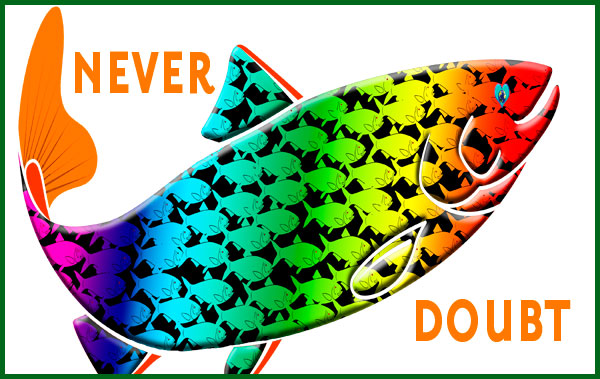Activism

NEVER DOUBT that a small group of thoughtful, committed citizens can change the world. Indeed, it is the only thing that ever has..
Activism is defined as “the doctrine or practice of vigorous action or involvement as a means of achieving political and other goals, sometimes by demonstrations and protests.” There’s much more to activism than this limited picture. Let's look at some expanded ideas.
Resistance: Here’s where we stop or slow down a destructive force, policy or action. Often this takes the form of direct action—marches, protests, demonstrations, civil disobedience. Many say that direct action is the most important tool we have right now for change, and we have definitely seen the positive impact of mass movements, most recently in climate change work. Millions of aware people are now realizing that merely changing light bulbs is not the solution if we don’t simultaneously change our values and the whole economic / political system. We’ve seen our power to make change. One activist says, “The core of activism is voice. I don’t think there is any fight we cannot win if we have the numbers.”
Renewal: In this arena we build the foundations and forms for a sustainable way of living. This is going on all over the world with increasing momentum, from the rise of alternative clean energy use, emerging local economies, cooperatives, small-scale agriculture, to the development of earth-friendly materials to replace non-degradable stuff. Hundreds of organizations are working to build a conscious, caring economy, and a truly democratic system. (See a few favorites in Resources for Inspired Action.) Two great sources for positive news are The Optimist Daily and YES! magazine. It is vitally important that we get a big dose of good news to balance the in-our-face bad news the mass media serves us.
Change of consciousness: In this realm we inform ourselves about what’s really going on. Visionary activist Helena Norberg-Hodge believes that one of the most powerful forms of resistance is awareness—informing ourselves and others about the realities of our destructive system so we can create truly sustainable solutions. She calls this “awareness activism.” And as Joanna Macy instructs, we must be unafraid to face the hard truths, and to let our hearts break. It is only by engaging this process that we can free ourselves from hopelessness, helplessness, depression and apathy to take meaningful action. It is truly revolutionary activism at the deepest level, and the only way we can bear the unbearable. [See my Reflection on Despair] As Gandhi tells us, “Be the change we wish to see in the world.”
The Motivation for Our Activism: Many people who join protest marches are justifiably angry and frustrated at circumstances. We need to expose and confront injustice and corruption, but violent, mean-spirited confrontations that harm people and property are more likely to turn people off to our cause than a march that is imbued with positive energy. Picture the climate marchers in New York and Paris, many decked out in colorful costumes, carrying bright banners, with linked arms and happy faces. These folks were having fun, while having a huge impact on policymakers. All good.
One of the most influential books I’ve read recently is Creating A World That Works For All, by Sharif Abdullah. He puts it this way: “For those wishing to create a better world there is a dual purpose in our activism: to transform ourselves and to transform the world. The principal tool to produce that change is compassion. Many of us are motivated more by anger at what is wrong than expectant joy at what could be right. We need to try not to act from anger or fear."
Stepping it up: Given the increasingly violent rhetoric and actions of our day, the continuing deterioration of ecosystems, and the deepening polarity between people, it is time to step up our activism in whatever way fits our personal nature and style, our time and energy. As Dr. Jean Shimoda Bolen says, “Your cause, your assignment, is directed by what’s meaningful to you personally.”
Let me count the ways: There are many ways to think about and practice activism. This excellent article from YES! magazine gives us “17 Ways You Can Work for Social Justice."
Don’t discount the value of your attitude to bring about change, or your working on a subtle level to envision what we want. Studies prove this practice of envisioning what is desirable—subtle or spiritual activism—is very effective.
This sounds contradictory, but we need to have fun at this serious business of making change. We still need to celebrate life, to feel awe and wonder at the magnificence of our planet. We can go about our day in a slow and mindful manner, staying in a place of love, compassion and kindness as much as possible in relation to ourselves, other people and Nature.
We should also take seriously the power of “clicking,” and digital activism. Think of President Obama’s rejection of the Keystone pipeline, Shell’s withdrawal from drilling in the Arctic, and other successes that have been effective in part because of “mass clicking.”
May we all be creative activists in service to greater harmony on Earth.
Favorite Resources & Quotes
YES! magazine
The Optimist Daily
Desert Rose Press: The "Never Doubt" card, with well-known quotes by activists, is available at our press website.
Nobody made a greater mistake than he who did nothing because he could do little.
Edmund Burke,
Our lives begin to end the day we become silent about things that matter.
Dr. Martin Luther King, Jr.
Marching without heart is just motion. Speeches without love are just words. . . Collective resistance alongside creative, joyful envisioning of change at the systemic level create humane and ethical uprisings.
Sharif Abdullah
Back to Blog